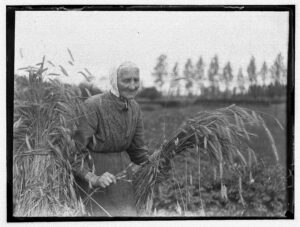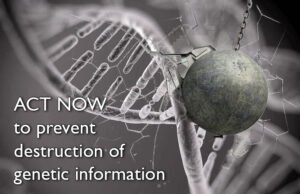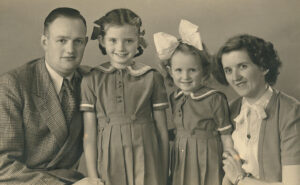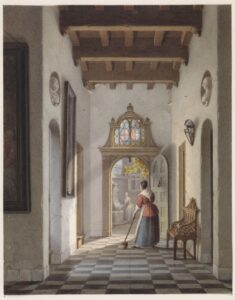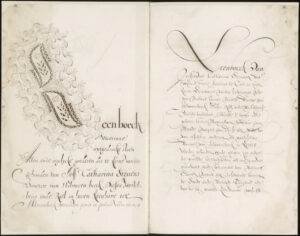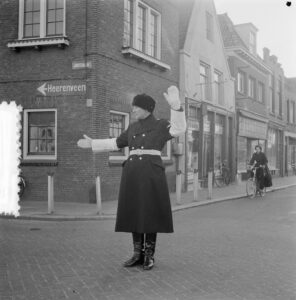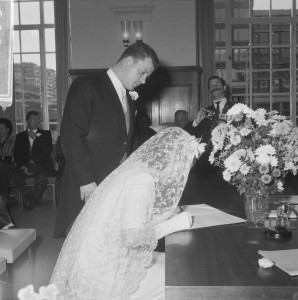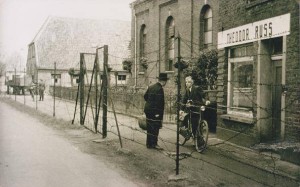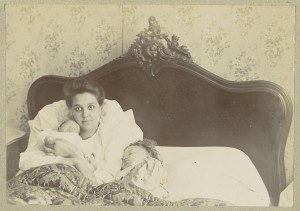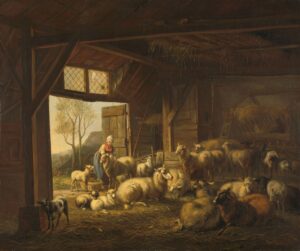A boerin is a female farmer. Women worked alongside the men on a farm. They were often responsible for the work in and around the farm, taking care of the animals and food preparation, while the men mostly worked the fields. But in August, everyone would work together to get the harvest in. … [Read more...]
URGENT: Help prevent the destruction of data about biological parents of donor-conceived children
Archives with data about the biological parents of donor-conceived children are being transferred to the National Archives of the Netherlands. These records contain information about the donors who contributed genetic material for conception. A proposed selection list is now open for review until 11 January 2023. The proposal wants to destroy data about donors 110 years after the last treatment. Proposed selection list Please do not hesitate to let the archives know your viewpoint. You … [Read more...]
Dutch Ancestors Research Plan – 20th century
In my Level-Up Challenge, I defined six levels of ancestral profiles. In this post, I will give you a basic research plan for an ancestor living in the 20th century for levels 1-4. Level 1: Names only I usually find the name of the person in records of somebody else I am researching. No specific research plan needed. Level 2: Vital statistics Birth record. Birth records are public after 100 years. Marriage record. Marriage records are public after 75 years. Death record. Death … [Read more...]
Dutch term – Gang
A gang is a hallway. You may encounter the term in estate inventories, that tally the items per room in the house. … [Read more...]
Dutch Genealogy News for November 2022
Here is an overview of the new sources, websites, and projects that were announced last month. Sources The Regionaal Archief Rivierenland is putting the indexed notarial records of the west of Gelderland online. The records were indexed by volunteers, and they are now being uploaded to the archive's website. The finding aid for the files of people investigated by the Domestic Security Service (Binnenlandse Veiligheidsdienst, BVD) between 1945 and 1998 have been catalogued. The finding … [Read more...]
Quick tip – Was the municipality involved?
Records created by the municipality can be a great source of information about our ancestors' lives. The municipality collected taxes, provided poor relief, gave permits, and kept population registers. They employed many people, including teachers, architects, and police officers. They wrote reports about the state of the municipality, which can give information about crops, industry, and special events. The mayor was informed if a resident was admitted to an asylum, or of other special … [Read more...]
Quick tip – Check marriage supplements of children
If you are researching a person, make sure to check the marriage supplements of any children who married after the introduction of the civil registration. The civil registration was introduced in 1811 in most parts of the Netherlands, and in 1795 in parts of Limburg and Zeeuws-Vlaanderen. Civil registration marriage records have marriage supplements, the records that the bride and groom had to submit to show their identity and eligibility to get married. These records often contain … [Read more...]
Dutch term – Grens
A grens is a border. Municipal borders determined where a couple would register the birth of their child, where they were taxed, where they would apply for a permit. Judicial borders determined which court prosecuted a ciminal, granted a divorce, or appointed a guardian. Borders affected our ancestors' lives. My ancestor Arend Kastein moved across the street and tried to apply for a job as a policeman. But since that street happened to be the Dutch-German border, he needed to be … [Read more...]
Quick tip – Get the birth records of all children
When you are researching a family during the time of the civil registration (after 1811 in most parts of the Netherlands), make sure to gather the birth records of all the children. They are usually easy to find since most of them have been indexed. Some things you can learn when you have the birth records of all the children: It will give you the family composition. I find it interesting to see what place a child had in its family. Was he the oldest son? He may have followed in his … [Read more...]
Dutch term – Levende have
Levende have means livestock. You may come across the term as a heading in inventories of estates in notarial records or voluntary legal records. Just because someone owned livestock does not mean that they made their living by farming. Many people owned a goat or cow for their milk. They may have sold the surplus, but would have other means of income. … [Read more...]
